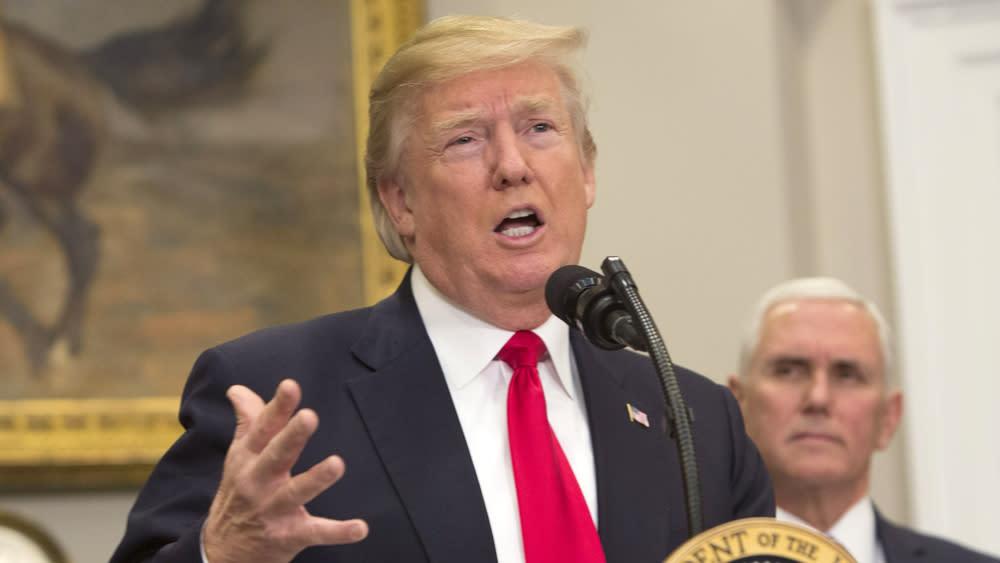Key House Republican Predicts Congress Will Preserve PBS, NPR Funding

WASHINGTON — Rep. Tom Cole (R-Okla.) comes from what he says is “probably the reddest state in the union,” but there is one area where he diverges from President Donald Trump’s White House: funding for PBS, NPR, and public broadcasting stations.
Cole is the chairman of the House subcommittee that oversees funding for the Corporation for Public Broadcasting, the entity tasked with giving federal grants, and he cites a number of reasons why he thinks lawmakers will continue to support it. Top on the list is its popularity with the public.
“All due respect to the president, I disagree,” Cole told Variety. “There is strong bipartisan support for the Corporation for Public Broadcasting. The House has still funded it fully in the past two years, and I would expect it will happen again in the omnibus bill.”
Congress is in the midst of negotiations on a spending plan to fund the federal government for the rest of fiscal year 2018, but Cole also said that he expects to support the CPB budget for 2019. The federal outlay for public broadcasting has run about $445 million to $450 million in recent years, which is a substantial sum but still tiny compared to the $4.4 trillion federal budget.
“If you look at the range of services it provides, the quality of programming and the points of view it expresses, I just think for the amount of money we are talking about here, and the multiplier effect, it is able to sustain itself,” he said. “I don’t see Congress having the desire [to cut funding] because they reflect the desire of the American people.”
The White House, in the budget proposal, argued that private donors could fill the void from the loss of federal funding, and that there are ample alternatives in the media landscape compared to when public TV was launched in the late 1960s. Last year, White House budget director Mick Mulvaney even argued at a congressional hearing that “Big Bird makes more money than anyone in this room.”
Cole said that past Republican efforts to eliminate funding for public broadcasting have been driven by concerns over the deficit, that there “is an ideological bias, or that the government just shouldn’t do it.”
But he said that those lawmakers do not make up the majority.
“When this topic comes up, there is usually very substantial support, in the 70 percent range in polls,” he said, adding that calls and letters to his office also reflect positive attitudes toward federal funding.
Cole said that when it comes to addressing the deficit, targeting public broadcasting funding is “nickel and dime-ing things” when the real issue is in reforming entitlement programs like Medicare, Medicaid and Social Security.
He also doubts that a commercial entity could replace some of the programming that is done by public broadcasting. In Oklahoma, public stations cover the state capital and provide public affairs programming that probably wouldn’t have a counterpart with a commercial entity.
“They strive to be informed, they strive to be fair and they bring a high quality to the consumer,” he said. “They do things that no one else will do.”
The Trump administration’s first budget also called for eliminating federal funding, but the funding survived as the question went before Cole’s committee, the House Appropriations Subcommittee on Labor, Health and Human Services, Education and Related Agencies.
America’s Public Television Stations, the association that lobbies for support of federal funding, launched an online campaign last year called Protect My Public Media, and has drawn an email list of about 720,000 names in support. On Monday, when the new budget was announced, another 15,000 signed up, said Patrick Butler, president and CEO of the group.
Station general managers ran spots and announcements urging viewers to respond to the threat of funding, and Butler said that he will encourage that the same thing be done this time around. Station representatives will trek to D.C. for an annual summit from Feb. 26 to 28.
Butler said that they have tried to make the case to White House officials that private donations cannot sustain programming in areas like education and public safety, “but they have just not been willing to accept the argument. But we are going to keep trying.”
He said that he is optimistic about funding this year, but “when a president proposes to do away with your funding, that is a very big deal.”
Related stories
Trump's Budget Again Proposes Elimination of Public TV, Arts Funding
To Go or Not to Go: Will Trump Attend the White House Correspondents Dinner?
Beth Hoppe, Senior PBS Executive, Jumps to ABC News
Subscribe to Variety Newsletters and Email Alerts!

